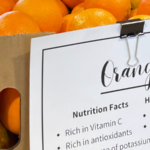Bad puns aside, when was the last time you thought about your kidneys?
Unless you’re one of the 37 million people in the US with some form of chronic kidney disease, you probably haven’t given them much thought.
Make two fists with your hands right now. Don’t worry if you’re in a public space, pretend like you’re stretching.
Brita filter’s have nothing on the kidney
Did you know that those two fist-sized organs under your ribcage on either side of your spine filter 200 quarts (that’s 50 gallons if you’re counting) of blood a day? You might recall someone reminding you to drink 8, 8-ounce glasses of water a day and finally you know why! Only 2 quarts of the 200 quarts a day is sent out as waste (again, for you mathematicians that’s exactly 64 ounces, or 2 quarts).
Here’s some other things your kidneys do:
- Hormone production for your blood
- Converts vitamin D from a non-usable source like the sun into a usable form. Vitamin D helps retain calcium and phosphorus which builds bones, reduces inflammation, and reduces tumor growth!
- Filters out minerals your body doesn’t need to maintain healthy blood
Here’s where food comes in
We would submit to you that poor access to healthy food, a reality for 1 in 5 food insecure individuals in Arkansas, leads to many diet-related illnesses that have seriously negative consequences for the health of their kidneys, and ultimately their lives.
Your kidneys are important. Lose even a portion of their function and life gets hard. So, what inhibits the correct function of these fleshy powerhouses?
Without getting too scientific, your kidneys filter toxic and unnecessary minerals out of your body to maintain healthy levels in your blood. When there is an overwhelming amount of something in your bloodstream, your kidney must work harder to process it, leading to kidney disease.
Diet is the number one cause of kidney disease
Diabetes is the leading cause of chronic kidney disease (1). A person with diabetes either lacks the insulin to process sugar or their blood rejects insulin, so sugar builds up in the blood, damaging the filters in your kidneys.
High blood pressure is kidney killer number two. High amounts of sodium in your diet cause your body to retain more water. More blood flowing in your veins, higher blood pressure. The extreme force of blood pumping through your kidneys can cause damage to its tiny blood vessels and lead to kidney disease or failure over time.
Food insecurity and kidney disease
There is no single reason why certain communities in Arkansas are more at risk for kidney disease, but food insecurity plays a huge role for many rural and minority communities.
African Americans are 4 times more likely to develop kidney disease, while Hispanic people and Native Americans are at 1.3% and 1.2%, respectively (2). Much of their risk is due to their risk for diet-related illnesses like diabetes and hypertension (high blood pressure).
How we are fighting kidney disease
Our mission is deeper than simply providing healthy food. Diet is the major determinant of our participants wellbeing, but empowerment and education are vital to see change.
Good news is kidney disease is reversible. With the correct diet, help from a nutrition or doctor, a support system, and a good nutritional plan, a kidney disease patient can return to good health in time.
Check your kidneys health here and find resources to avoid or manage kidney disease here.
Article by Peter Heil, Development Director
Sign up for our newsletter to see more content like this
Subscribe


































